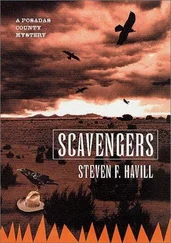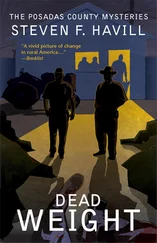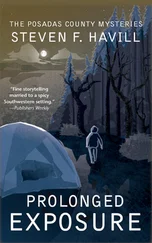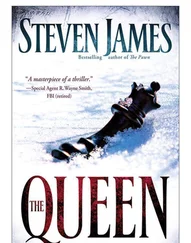Steven Dubner - Freakonomics
Здесь есть возможность читать онлайн «Steven Dubner - Freakonomics» весь текст электронной книги совершенно бесплатно (целиком полную версию без сокращений). В некоторых случаях можно слушать аудио, скачать через торрент в формате fb2 и присутствует краткое содержание. Жанр: Старинная литература, на русском языке. Описание произведения, (предисловие) а так же отзывы посетителей доступны на портале библиотеки ЛибКат.
- Название:Freakonomics
- Автор:
- Жанр:
- Год:неизвестен
- ISBN:нет данных
- Рейтинг книги:3 / 5. Голосов: 1
-
Избранное:Добавить в избранное
- Отзывы:
-
Ваша оценка:
- 60
- 1
- 2
- 3
- 4
- 5
Freakonomics: краткое содержание, описание и аннотация
Предлагаем к чтению аннотацию, описание, краткое содержание или предисловие (зависит от того, что написал сам автор книги «Freakonomics»). Если вы не нашли необходимую информацию о книге — напишите в комментариях, мы постараемся отыскать её.
Freakonomics — читать онлайн бесплатно полную книгу (весь текст) целиком
Ниже представлен текст книги, разбитый по страницам. Система сохранения места последней прочитанной страницы, позволяет с удобством читать онлайн бесплатно книгу «Freakonomics», без необходимости каждый раз заново искать на чём Вы остановились. Поставьте закладку, и сможете в любой момент перейти на страницу, на которой закончили чтение.
Интервал:
Закладка:
Bouza, a former top police official in both the Bronx and Minneapolis, discovered this when he ran for Minnesota governor in 1994. A few years earlier, Bouza had written a book in which he called abortion “arguably the only effective crime-prevention device adopted in this nation since the late 1960s.” When Bouza’s opinion was publicized just before the election, he fell sharply in the polls. And then he lost.
However a person feels about abortion, a question is likely to come to mind: what are we to make of the trade-off of more abortion for less crime? Is it even possible to put a number on such a complicated transaction?
As it happens, economists have a curious habit of affixing numbers to complicated transactions. Consider the effort to save the northern spotted owl from extinction. One economic study found that in order to protect roughly five thousand owls, the opportunity costs—that is, the income surrendered by the logging industry and others—would be $46 billion, or just over $9 million per owl. After the Exxon Valdez oil spill in 1989, another study estimated the amount that the typical American household would be willing to pay to avoid another such disaster: $31. An economist can affix a value even to a particular body part.
Consider the schedule that the state of Connecticut uses to compensate for work-related injuries.
LOST OR DAMAGED BODY PART
COMPENSATED WEEKS OF PAY
Finger (first)
36
Finger (second)
29
Finger (third)
21
Finger (fourth)
17
Thumb (master hand)
63
Thumb (other hand)
54
Hand (master)
168
Hand (other)
155
Arm (master)
208
Arm (other)
194
Toe (great)
28
Toe (any other)
9
Foot 125
Nose 35
Eye 157
Kidney 117
Liver 347
Pancreas 416
Heart 520
Mammary 35
Ovary 35
Testis 35
Penis 35–104
Vagina 35–104
Now, for the sake of argument, let’s ask an outrageous question: what is the relative value between a fetus and a newborn? If faced with the Solomonic task of sacrificing the life of one newborn for an indeterminate number of fetuses, what number might you choose? This is nothing but a thought exercise—
obviously there is no right answer—but it may help clarify the impact of abortion on crime.
For a person who is either resolutely pro-life or resolutely pro-choice, this is a simple calculation. The first, believing that life begins at conception, would likely consider the value of a newborn versus the value of a fetus to be 1:1. The second person, believing that a woman’s right to an abortion trumps any other factor, would likely argue that no number of fetuses can equal even one newborn.
But let’s consider a third person. (If you identify strongly with either person number one or person number two, the following exercise might strike you as offensive, and you may want to skip this paragraph and the next.) This third person does not believe that a fetus is the 1:1 equivalent of a newborn, yet neither does he believe that a fetus has no relative value. Let’s say that he is forced, for the sake of argument, to affix a relative value, and he decides that 1 newborn is worth 100 fetuses.
There are roughly 1.5 million abortions in the United States every year. For a person who believes that 1 newborn is worth 100 fetuses, those 1.5 million abortions would translate—dividing 1.5 million by 100—into the equivalent of a loss of 15,000 human lives. Fifteen thousand lives: that happens to be about the same number of people who die in homicides in the United States every year.
And it is far more than the number of homicides eliminated each year due to legalized abortion. So even for someone who considers a fetus to be worth only one one-hundredth of a human being, the trade-off between higher abortion and lower crime is, by an economist’s reckoning, terribly inefficient.
What the link between abortion and crime does say is this: when the government gives a woman the opportunity to make her own decision about abortion, she generally does a good job of figuring out if she is in a position to raise the baby well. If she decides she can’t, she often chooses the abortion.
But once a woman decides she will have her baby, a pressing question arises: what are parents supposed to do once a child is born?
Levitt found that the support at the University of Chicago went beyond the scholarly. The year after he was hired, his wife gave birth to their first child, Andrew. One day, just after Andrew turned a year old, he came down with a slight fever. The doctor diagnosed an ear infection. When he started vomiting the next morning, his parents took him to the hospital. By the following day he was dead of pneumococcal meningitis.
Amidst the shock and grief, Levitt had an undergraduate class that needed teaching. It was Gary Becker—a Nobel laureate nearing his seventieth birthday—
who sat in for him. Another colleague, D. Gale Johnson, sent a condolence card that so moved Levitt that he can still cite it from memory.
Levitt and Johnson, an agricultural economist in his eighties, began talking regularly. Levitt learned that Johnson’s daughter was one of the first Americans to adopt a daughter from China. Soon the Levitts began proceedings to do the same, a girl they named Amanda. In addition to Amanda, they have since had a daughter, now three, and a son, nearly one year old. But Andrew’s death has played on, in various ways. The Levitts have become close friends with the family of the little girl to whom they donated Andrew’s liver. (They also donated his heart, but that baby died.) And, not surprisingly for a scholar who pursues real-life subjects, the death also informed Levitt’s work.
He and Jeannette had joined a support group for grieving parents. Levitt was struck by how many children had drowned in swimming pools. They were the kind of deaths that don’t make the newspaper—unlike, for instance, a child who dies while playing with a gun.
Levitt got curious, and went looking for numbers that would tell the story. He wrote up the results as an OpEd for the Chicago Sun-Times. It featured the sort of plangent counterintuition for which he has become famous: “If you both own a gun and have a swimming pool in the backyard, the swimming pool is about 100 times more likely to kill a child than the gun is.”
—THE N EW Y ORK T IMES M AGAZINE, AUGUST 3, 2003
5
What Makes a Perfect Parent?
Has there ever been another art so devoutly converted into a science as the art of parenting?
Over the recent decades, a vast and diverse flock of parenting experts has arisen.
Anyone who tries even casually to follow their advice may be stymied, for the conventional wisdom on parenting seems to shift by the hour. Sometimes it is a case of one expert differing from another. At other times the most vocal experts suddenly agree en masse that the old wisdom was wrong and that the new wisdom is, for a little while at least, irrefutably right. Breast feeding, for example, is the only way to guarantee a healthy and intellectually advanced child—unless bottle feeding is the answer. A baby should always be put to sleep on her back—
until it is decreed that she should only be put to sleep on her stomach. Eating liver is either a) toxic or b) imperative for brain development. Spare the rod and spoil the child; spank the child and go to jail.
In her book Raising America: Experts, Parents, and a Century of Advice About Children, Ann Hulbert documented how parenting experts contradict one another and even themselves. Their banter might be hilarious were it not so confounding and, often, scary. Gary Ezzo, who in the Babywise book series endorses an “infant-management strategy” for moms and dads trying to
Читать дальшеИнтервал:
Закладка:
Похожие книги на «Freakonomics»
Представляем Вашему вниманию похожие книги на «Freakonomics» списком для выбора. Мы отобрали схожую по названию и смыслу литературу в надежде предоставить читателям больше вариантов отыскать новые, интересные, ещё непрочитанные произведения.
Обсуждение, отзывы о книге «Freakonomics» и просто собственные мнения читателей. Оставьте ваши комментарии, напишите, что Вы думаете о произведении, его смысле или главных героях. Укажите что конкретно понравилось, а что нет, и почему Вы так считаете.











